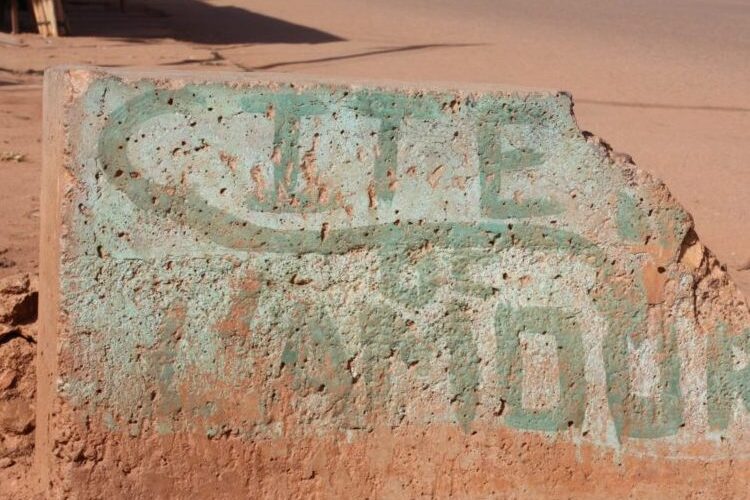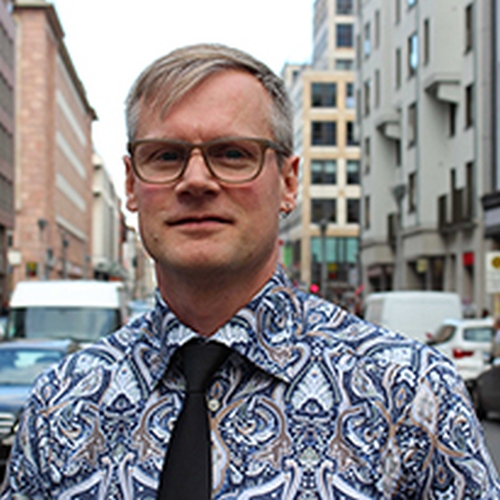Border Crosser
Jonas Nielsen studies what climate change means for people in Burkina Faso

For human-geographer Jonas Nielsen, travelling is part of the job. Nielsen grew up in a small village in Denmark and attended university in Auckland and Copenhagen, and since 2013, he has lived with his family in Berlin. However, his research field is located in West Africa. For many years, Nielsen has been researching how people in Burkina Faso are dealing with the results of climate change. “It is an unbelievably poor country in which agriculture is almost impossible without rain”, he says. “Drought is forcing people to find new sources of income, otherwise they cannot survive.”
Sticking to what’s going on
Due to difficult living conditions, many people are thus moving to the cities, especially to the capital Ouagadougou, which is a city full of poverty and misery but also hope for many of the migrants living there. Analog to migration movement, Nielsen has changed his own research focus shifting from studying a small village in the North of the country as doctoral and postdoctoral researcher to studying urbanisation processes in Ouagadougou. Now, he explores why people move to the city and how they shape their new lives there. Climate change is only one reason for migrating, Nielsen points out. Others such as marriage, work, sorcery, and a desire for less social control are also present. Unravelling these drives is a big part of Nielsen’s research.
How qualitative and quantitative research complement each other
A major problem in sub-Saharan cities including Ouagadougou is that “we don’t know how many people have actually moved here in the past few years, because there is very little census data available”, says Nielsen. Although remote sensing using satellite imagery can help count houses and determine the spatial expansion of the cities over time, research in the field is often the only way to determine what is actually going on. In Ouagadougou many of the dwellings built are for example not inhabited. A large number of empty huts can therefore be observed in Ouagadougou. Built by people in informal settlements spreading around the city they serve as investment for the future and represent people’s hope for getting a foot on the ground. “This example shows that qualitative and quantitative research should collaborate more closely in order to complement each other”, says Nielsen. Something, he continues, THESys provides a perfect setting for.
Questioning distinctions
Jonas Nielsen’s research group is interdisciplinary and international in its research foci. His team includes an environmental scientist as well as a geographer, a sociologist, and an expert in Human Rights Law. Not only mobile and multi-local dwelling places in Burkina Faso, but also burning forests in Catalonia, banana plantations in Northern Laos, hydro plants in Turkey or land in Palestine mark their fields of interest. What all of them have in common, is calling barriers drawn between traditional distinctions into question. “My work at IRI THESys focuses on how to break down the established scientific, normative and commonly held barriers between domains such as rural-urban, North-South, social-natural science and nature-culture. Understanding current challenges in research requires this we believe in my group. No single discipline or understanding alone can answer questions revolving around issues of global climate change, sustainability, and/or local-global connections.”
Contact

Jonas Nielsen
Email:
Jonas Ø. Nielsen is a Professor in Integrative Geography at Humboldt-Universität´s Geography Department. He studied social anthropology at Auckland University, New Zealand, and University of Copenhagen, Denmark, and obtained his doctorate in Human Geography in 2010 with a dissertation entitled “Despite the Rain. Living and dealing with climate change in a small West African village.” From 2010 to 2013, he worked as a Post-Doctoral fellow in the European Research Council (ERC) funded project Waterworlds at the University of Copenhagen.


